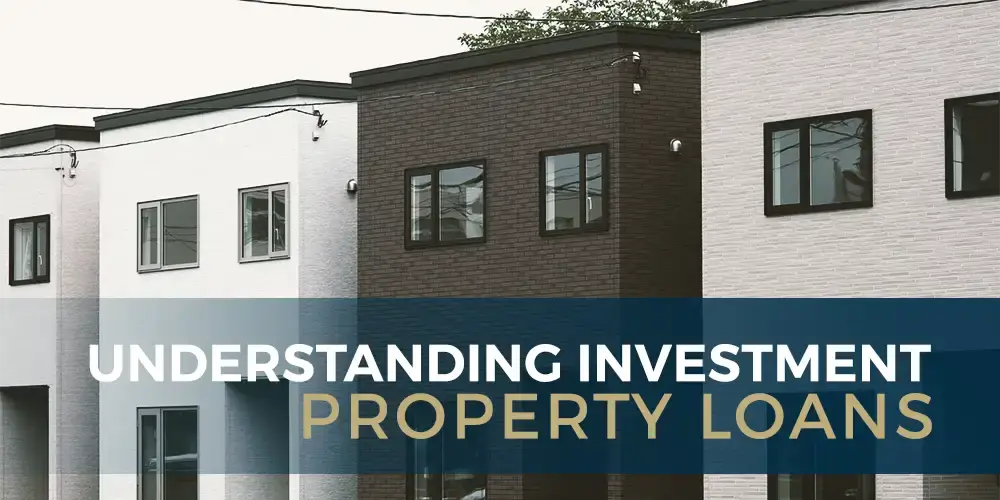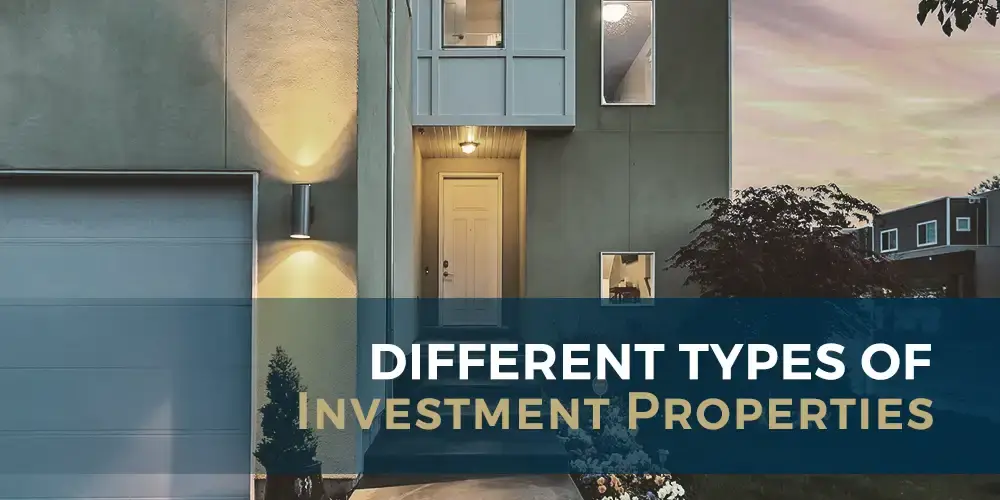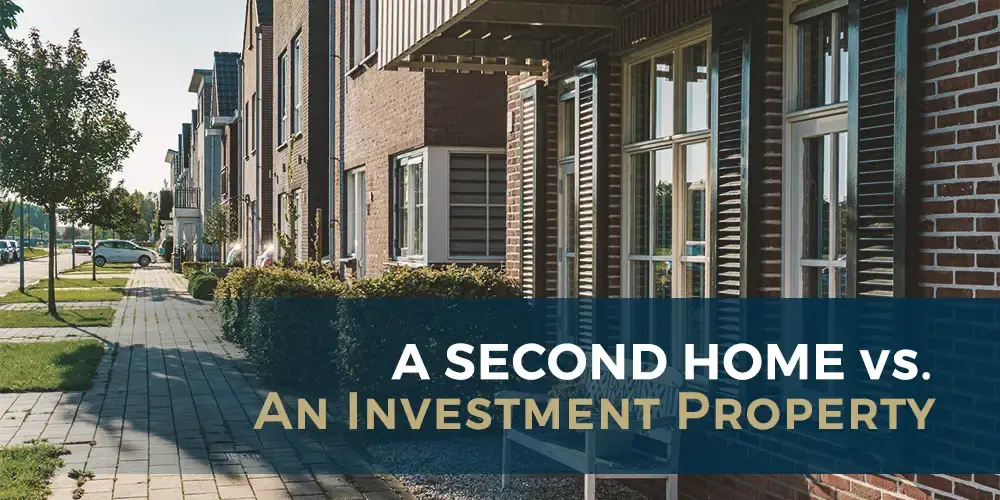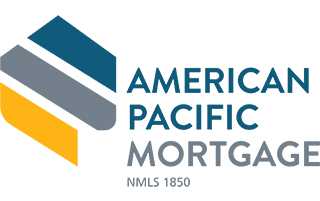How to Finance & Purchase an Investment Property
Investing in real estate can be a smart way to build wealth and generate passive income.
However, navigating the financing process and purchasing an investment property can be complex.
This guide will walk you through the steps to secure financing and make informed decisions when buying an investment property.


Why Invest in Real Estate?
Real estate investment offers numerous benefits that make it an attractive option for building wealth. Here are some key reasons why buying an investment property could be a smart move for you:
- Rental Income: Generate consistent cash flow and passive income by renting out your property.
- Appreciation: Real estate has the potential to appreciate over time, increasing the property’s value and your overall investment. Making improvements to your property can further boost its value and command higher rents.
- Diversification: Adding an investment property to your portfolio spreads out your risk and reduces overall volatility.
- Tax Benefits: Real estate investments can offer various tax advantages, including deductions for mortgage loan interest, operating expenses, property taxes, insurance, and depreciation.
- Inflation Hedge: Investment properties often hold steady or increase in value over time, helping you hedge against inflation.

Understanding Investment Property Loans
Securing a loan for an investment property differs from getting a mortgage for a primary residence. Lenders typically view investment properties as higher-risk, which can lead to stricter requirements.
Key Differences from Primary Residence Loans:
- Higher Interest Rates: Investment property loans often come with higher interest rates than primary home mortgages.
- Larger Down Payments: Expect to put down a larger percentage of the property’s value—often 15% or more.
- Stricter Credit Requirements: Lenders typically require a credit score over 620 to qualify for an investment property loan.
Types of Loans for Investment Properties:
- Conventional Loans: These are the most common and require a strong credit score and a sizable down payment.
- FHA Loans: Typically not available for investment properties unless you plan to live in one unit of a multi-family home. If that’s what you plan to do, you may be able to put as little as 3.5% down.
- VA Loans: These loans are also designed to purchase a primary residence, but you may be able to utilize this for your investment goals if you have extra space in your primary residence to rent out or you are purchasing a 2-4 unit property where you will live in 1 of the units.
- Commercial Loans: Ideal for those purchasing larger properties with five or more units.
- DSCR Loans: Debt Service Coverage Ratio (DSCR) loans are a powerful tool for real estate investors. These loans focus on the income generated by the property rather than your personal income, offering flexibility to expand your portfolio with ease.

Qualifying for an Investment Property Loan:
Eligibility Factors:
Lenders will assess several factors when determining your eligibility:
- Credit Score: A higher credit score improves your chances of qualifying for favorable loan terms.
- Debt-to-Income Ratio (DTI): Lenders will review your DTI to ensure you can handle the additional debt. If you are utilizing a DSCR Loan, then DTI is not a factor!
- Cash Reserves: Having substantial reserves shows lenders that you can manage the property, even if rental income is interrupted.
Steps to Secure Financing:
- Evaluate Your Finances: Assess your credit, savings, and current debts.
- Research Financing Options: Talk to a mortgage advisor to determine which loan program makes the most sense for your particular situation.
- Get Pre-Approved: This step shows sellers you’re serious and financially capable of purchasing the property.
- Consider a Property Management Plan: Decide whether you want to handle rent collection, tenant screening, and property management, or if it makes more sense to hire a property manager. That’s an additional cost that will need to be factored into your budget.

Different Types of Investment Properties
If you’re considering investing in real estate, it’s important to know that there are several types of investment properties to choose from.
Single-family homes are a popular choice, particularly for long-term rentals. Depending on local regulations and HOA rules, they may also be suitable for short-term rentals, provided there’s demand in the area.
Multifamily properties offer another great option, ranging from duplexes to apartment buildings. The advantage here is the potential for multiple tenants, which translates into multiple rent payments each month. A little-known fact about multifamily properties is that if you choose to live in one of the units, you may qualify for more favorable mortgage terms by financing it as a primary residence rather than an investment property.
Condos are another option to consider. In this setup, you own a unit within a larger building, similar to an apartment. However, be sure to review the building’s rules and regulations, as condo associations can have specific guidelines that impact your rental plans.
Short-Term Rentals and Airbnb
If you’re thinking about buying a property specifically for short-term rentals, like listing it on Airbnb, it’s crucial to do your homework.
Start by researching local regulations that govern short-term rentals. Some cities have strict rules, permits, or restrictions that could affect your plans, so it’s essential to understand the legal landscape in your chosen area.
When selecting a property for short-term rentals, focus on features that are likely to attract travelers, such as proximity to attractions, spacious accommodations, appealing amenities, and an inviting atmosphere. Consider the property’s layout, the number of bedrooms, available parking, and outdoor spaces to ensure it meets the needs of guests.
While short-term rentals can be profitable, it’s important to consider the long-term viability of your investment. Choose locations with economic stability and potential for growth, and be mindful of any market shifts or regulatory changes that could affect your rental business.

A Second Home vs. an Investment Property
It’s common to confuse second homes with investment properties, especially since an investment property might be your second home purchase. However, these two types of properties serve different purposes and have different financial requirements.
A second home is primarily for your personal use, such as a vacation home where you and your family stay for part of the year. Typically, a second home must be located at least 50 miles from your primary residence. While you can rent out a second home, there are guidelines imposed by the IRS for tax purposes as well as lenders for the loan you obtain. You cannot offer 1-year leases on 2nd homes as that would prohibit you from occupying the property part of the year.
These distinctions impact the type of financing you can obtain, as well as the potential for generating cash flow and taking advantage of tax benefits.
Conclusion:
Investing in real estate can be a profitable venture if approached with careful planning and a solid understanding of the financial requirements. By following the steps outlined in this guide, you’ll be well on your way to successfully financing and buying your next investment property.
Ready to Invest?
Click here to connect with a US Lending Company Loan Advisor who can help you explore your options and find the best financing solution for your investment goals.
The views, articles, postings, and other information listed on this website are personal and do not necessarily represent the opinion or the position of American Pacific Mortgage Corporation or US Lending Company.
* For loan examples and more information visit our disclosure page at https://www.uslendingcompany.com/disclosures/





